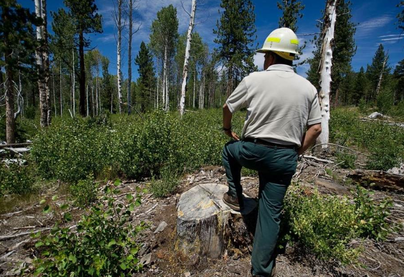
A federal appeals court has ruled that the U.S. Forest Service was on solid legal ground when it put more than 90 percent of “user-created” miles off-limits to motorized vehicles in Tahoe National Forest.
The forest service’s 2010 action generated disbelief and anger among off-highway vehicle owners, who sued the service’s umbrella agency, the U.S. Department of Agriculture, as well as the service itself and three of its officials, alleging a variety of procedural defects arising out of an environmental impact analysis underpinning the dramatic mileage reduction.
A broad array of environmental advocacy organizations cheered the development and intervened on the side of the government in the lawsuit, filed in Sacramento federal court in 2012.
Tahoe National Forest lies northwest of Lake Tahoe, covering 871,495 acres and parts of Sierra, Placer, Nevada, Yuba, Plumas and El Dorado counties.
The forest is crisscrossed by almost 3,700 miles of roads and trails, some of which are not maintained and were neither planned nor engineered, but instead were created over time by repeated cross-country vehicle use.
Affirming a decision by U.S. District Judge John A. Mendez of Sacramento more than two years ago, the 9th U.S. Circuit Court of Appeals said in Friday’s unpublished memorandum that the environmental review fully supports the forest service’s designation of 62 miles out of 869 miles of user-created routes as part of the forest’s official transportation system, and the closure of the remaining 807 miles to motor vehicle use.
The unanimous appeals panel consisted of circuit Judges Michael Daly Hawkins and Mary H. Murguia, and district Judge Charles R. Breyer of San Francisco, sitting on temporary assignment to the appellate court.
The suit was filed on behalf of off-highway-vehicle users by attorneys at the Sacramento-based Pacific Legal Foundation, a conservative advocacy organization described on its website as dedicated to “limited government, property rights, individual rights and a balanced approach to environmental protection.”
The suit targets implementation at Tahoe National Forest of the forest service’s travel management rule.
The 9th Circuit judges held that the service “considered a reasonable range of alternatives” in applying the rule, and “fully considered the environmental impacts of those alternatives; this is all that (the National Environmental Policy Act) requires.”
“The Forest Service’s assessment of the environmental impacts of each alternative was detailed and thorough,” the panel stated in its memorandum. “Plaintiffs have failed to show how considering additional alternatives would have fostered more informed decision making than the alternatives that the Forest Service analyzed and rejected based on the adverse environmental impacts it perceived.”
CLICK HERE to read the original article in the Sacramento Bee newspaper
 RSS Feed
RSS Feed